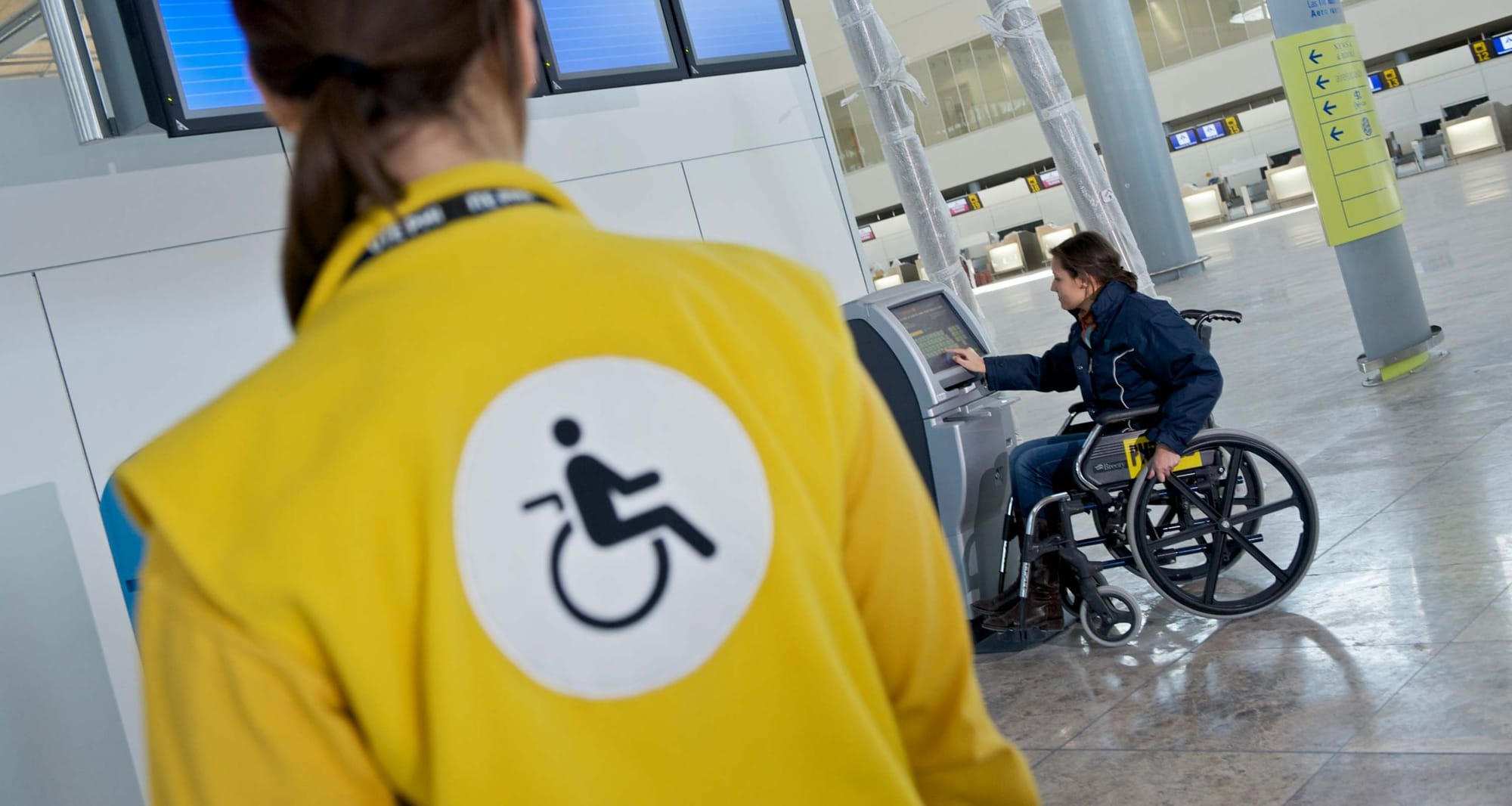
What levels and types of wheelchair assistance are available at the airport and on the airplane? What are SSR codes?
Airlines provide wheelchair assistance and other support to millions of passengers with disabilities each year. When a traveler requests special assistance, the airline codes that into their ticket record using a special service request code, or SSR. These codes allow airlines to easily keep track of assistance requests and assign staff accordingly.
It is important that the correct code(s) be placed in your record to ensure that the assistance provided is appropriate and timely. The tables below identify and define the types of assistance and SSR codes of interest to air travelers with disabilities.
Wheelchair Assistance SSR Codes
The following SSR codes relate specifically to assistance offered to passengers with reduced mobility. These codes are used by the majority of airlines, but some foreign carriers may utilize a different format.
| SSR Code | Description of Assistance |
|---|---|
| WCHR | Wheelchair assistance required; passenger can walk short distance up or down stairs. |
| WCHS | Wheelchair assistance required; passenger can walk short distance, but not up or down stairs. |
| WCHC | Wheelchair required; passenger cannot walk any distance and will require the aisle chair to board. |
| WCOB | On-board aisle wheelchair requested (for use during flight). |
| WCMP | Passenger is traveling with a manual wheelchair. |
| WCBD | Passenger is traveling with a dry cell battery-powered wheelchair. |
| WCBW | Passenger is traveling with a wet cell battery-powered wheelchair. |
SSR Codes for Other Disabilities
The following SSR codes address other disability-related assistance needs, and may be used in conjunction with the wheelchair assistance codes. This list is not exhaustive. Passengers requiring any of these services should insist that the air carrier notate their ticket record with the relevant SSR codes.
| SSR Code | Description |
|---|---|
| BLND | Passenger is blind or has reduced vision. |
| DEAF | Passenger is deaf or hard of hearing. |
| DPNA | Disabled Passenger with Intellectual or Developmental Disability Needing Assistance |
| ESAN | Passenger is traveling with an emotional support animal. |
| EXST | Passenger requires an extra seat due to body size. |
| MAAS | Meet-and-assist. Used by some airlines to identify passengers with intellectual disabilities. |
| MEDA | Medical case. Used by some airlines to identify passengers needing oxygen. |
| OXYG | Passenger will require oxygen. |
| PETC | Passenger is traveling with a pet in cabin. |
| PNUT | Passenger is allergic to peanut dust. |
| PPOC | Passenger is traveling with a portable oxygen concentrator. |
| STCR | Passenger is traveling on a stretcher. |
| SVAN | Passenger is traveling with a service animal. |
Passengers should call and have the relevant SSR codes added to the ticket record at the time of booking or soon thereafter. Advance notice allows airlines and airport contractors to better manage and assign the staff who provide wheelchair and other assistance at the airport.



